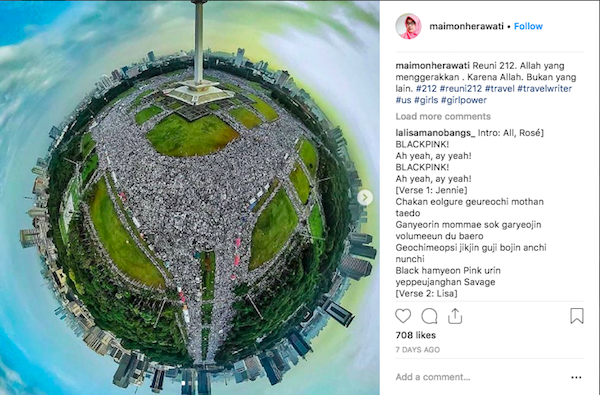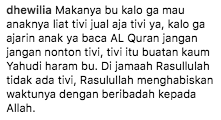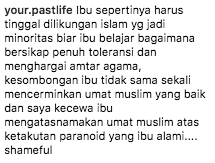If you’ve been watching Indonesian TV recently (or Youtube, for that matter), you’ve probably seen an ad by e-commerce giant Shopee featuring K-pop girl group BLACKPINK a couple of times already.
https://www.youtube.com/watch?v=USSiiUB1W0g
While some would say the ad — which features BLACKPINK performing a customized version of their hit single Ddu Du Ddu Du — is fairly innocuous, especially as far as K-pop videos go, it seems many Indonesians think the commercial is a moral danger to Indonesia, chief among them Maimon Herawati, a journalism lecturer who initiated an online petition to have the the ad taken off the air.
Maimon appealed to the KPI (Indonesian Broadcasting Commission) to have the commercial pulled and asked Indonesian parents to boycott Shopee through a petition on Change.org. Her reason?
“A group of women wearing scantily clad clothes that barely covers their aurat (an Islamic term to describe the parts of the body a person should cover up for the sake of modesty) — what kind of message are we instilling to the pure souls [of this country]?” Maimon wrote in the petition.
Maimon accused the ad of often appearing during the broadcast of children’s programs. After questioning KPI’s role in “protecting the nation’s future generation,” she asked KPI and Shopee to stop broadcasting the “vulgar” ad on social media, in addition to free-to-air and paid TV.
At the time of writing, the petition has received more than 88,200 signatures out of the targeted 150,000.
But unlike many of the moral crusades taken up by conservative Indonesians, this petition has gotten some major backlash from netizens — specifically militant K-pop fans. Maimon’s Instagram account has become a virtual battleground between K-pop fans and netizens who support her petition. On the extreme end of the opposition, there’s even a petition on Change.org demanding that Maimon leave Indonesia.
On a recent Instagram post by Maimon, numerous Blinks (a term for BLACKPINK fans) flooded the comments section with lyrics from the group’s hit single, Ddu Du Ddu Du:

Some left sarcastic comments:

“If you don’t want your children to watch TV, just sell your TV and teach them to read the Quran instead. TVs are made by the Jews, so it’s haram (forbidden). Back when Rasulullah SAW (Prophet Muhammad) was still around there were no TVs, He spent his time praying to Allah.”
There were also netizens who expressed disappointment in Maimon’s actions:

“Ma’am, I think you should live where Muslims are the minority so you could learn to be tolerant and respecting of other religions, your arrogance definitely doesn’t reflect the behavior of a good Muslim and I’m really disappointed you did this on behalf of us based on your own paranoia.”
Maimon was also the person behind a petition to cancel the performance of another K-pop girl group, SNSD, at an Indonesian Independence Day event last year, arguing that the “sexy” foreign singers were going to tarnish the true nationalistic spirit of the day. It turned out that she had petitioned against a false rumor because only two members of SNSD came to Jakarta for an Asian Games-related event, not Independence Day.
It’s not clear if Maimon’s petition against Shopee’s BLACKPINK ad will lead to it being taken off the air. But, as innocuous as the ad may seem to some of us, one can never underestimate Indonesia’s overzealousness when it comes to TV censorship.
In 2016, Indonesia’s own international popstar, Agnez Mo, had her entire body completely blurred out during a performance in which she wore a costume that modestly covered up her body. There was also an uproar when Puteri Indonesia 2016 contestants wearing traditional kebayas had parts of their bodies blurred. The heavy censorship occurred during replays of both events.
Other targets of TV censorship that have been ridiculed by Indonesian netizens in recent years include cartoon characters Shizuka from Doraemon and Sandy the squirrel from Spongebob Squarepants, a humanoid robot, and a female swimmer competing in Indonesia’s National Games.
KPI is often blamed for TV stations’ overzealous censorship, but the committee has in the past repeatedly clarified that it is the TV stations themselves who decide what to censor on a show-by-show basis. However, KPI sets out strict guidelines for TV stations regarding what they can show in regards to the human body.
“In broadcast standards and regulations article 18, it’s mentioned that TV stations are forbidden from ‘exploiting and/or showing specific body parts, such as thighs, behind, breasts, in a close-up or medium shot,” said KPI head Yuliandre Darwis in a 2016 interview, as quoted by Liputan 6.
This battle between increasingly conservative elements of Indonesian society, including women who think they should police how their fellow women dress, and young Indonesians who want to celebrate and embrace other cultures like K-Pop, is just one of many cultural wars that will ultimately decide which direction Indonesia goes as a country. Whose side are you on?




